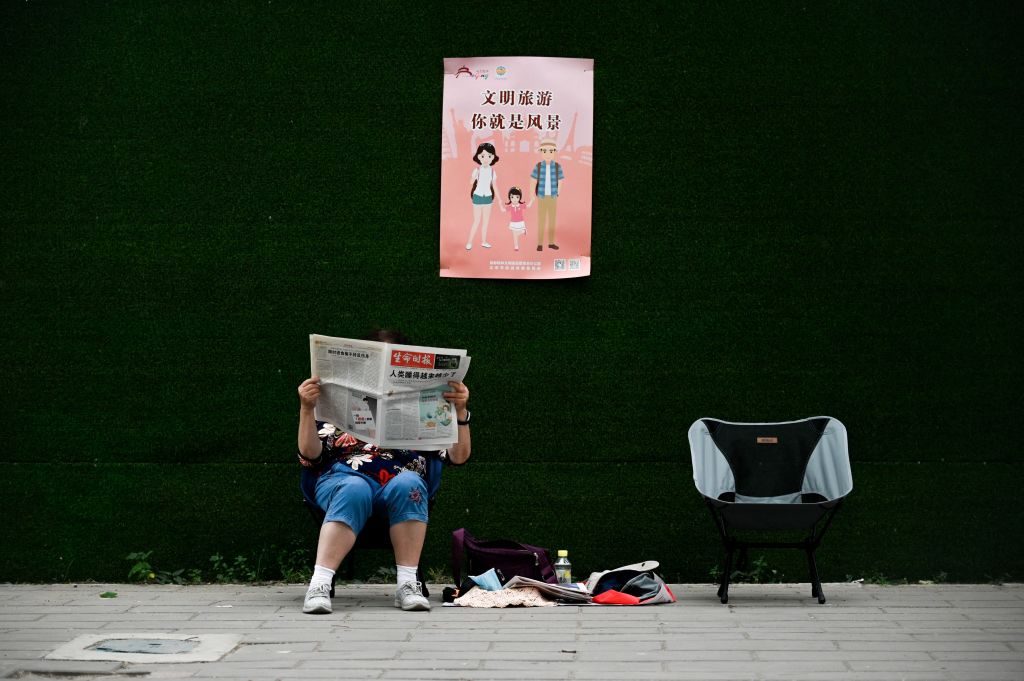Beijing is “gradually walking out of the shadow” of its latest Chinese coronavirus epidemic, the state-run Global Times reported on Sunday, suggesting the city may not face a total lockdown like that witnessed in Shanghai over the past two months.
“Beijing and Shanghai, China’s two megacities, are gradually walking out of the shadow of Omicron outbreaks,” the Global Times reported on May 29.
“Beijing residents embraced a joyful Sunday in newly reopened shopping malls, cinemas and gyms in low-risk areas, a major step toward normalcy, after a month-long business suspension due to the Omicron outbreak,” the newspaper revealed.
Beijing’s government reopened major shopping centers within the city’s Chaoyang district on May 29. The district is Beijing’s most populous and has been the hardest hit by the city’s partial lockdown orders over the past month. Chaoyang district was the first residential area in Beijing to observe a work-from-home edict, on April 28, as part of the city’s efforts to contain its latest outbreak of the Chinese coronavirus.
Communist Party officials in charge of Beijing chose to ease movement restrictions in the city on May 29 after announcing on May 28 that the city’s Chinese coronavirus caseload had steadily decreased over the past several days.
“[T]he overall epidemic situation in Beijing is on a downward trend, with new confirmed cases dropping for six consecutive days and eight districts reaching zero-COVID status at the community level, signaling that Beijing has effectively brought the latest COVID-19 [Chinese coronavirus] epidemic under control,” the Global Times reported.
Beijing’s latest outbreak of the Chinese coronavirus began on April 22. The epidemic in China’s national capital echoed one that started in Shanghai in mid-March. Shanghai entered a city-wide lockdown to contain its epidemic on April 5. The total lockdown has forced all of Shanghai’s 25 million-plus residents to observe stay-at-home orders for nearly two months. Communist Party officials in charge of Shanghai have said they plan to lift the city’s movement restrictions starting on June 1.
Shanghai’s lockdown caused Communist Party-confirmed food shortages across the financial hub starting in early April, including among some of the city’s wealthiest residents.
Chinese officials blocked two members of the World Health Organization (WHO) team investigating the origins of Covid-19 from entering China. https://t.co/4QwbQXOtct
— Breitbart News (@BreitbartNews) January 17, 2021
The strict movement restrictions also caused some people to suffer unnecessarily from adverse health events due to limited medical access, including one woman who died from an asthma attack after a Shanghai hospital refused to treat her due to anti-virus protocol on March 23.
“How many people died or suffered from a non-Covid condition as they couldn’t get the care they used to have, including for mental health?” George Hu, the president of the Shanghai International Mental Health Association, asked during an interview about Shanghai’s lockdown with NBC News on May 29.


COMMENTS
Please let us know if you're having issues with commenting.